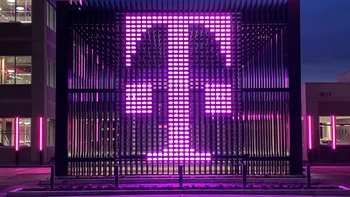Apple held back launch of iPhone XR to prevent cannibalization of pricier models?

Last year, Apple released the iPhone 8 and iPhone 8 Plus in September and had to wait until November to launch the pricier iPhone X. The company faced issues receiving the latter device's OLED panels that were being used on an iPhone for the first time. This year, the release schedule is reversed with the two OLED models, the iPhone XS and the iPhone XS Max launching today, and the LCD sporting iPhone XR scheduled for release on October 26th.
Talk about a delay for the 6.1-inch iPhone started back in June when the device (then dubbed the "iPhone 9") had problems with the leakage of light around the notch area of the display. It would be easy to point to that problem as the reason for the staggered release dates, but according to a report in the Wall Street Journal, Apple delayed the iPhone XR for a completely different reason. The Journal cites sources familiar with Apple's production plan who claim that the delay has to do with pricing. Essentially, with the lower priced iPhone XR expected to outsell the other two 2018 models, the manufacturer was worried that the lower priced unit would cannibalize sales of the more expensive iPhone XS and iPhone XS Max. As a result, Apple staggered the release dates to give its higher priced phones nearly five weeks without competition from within.
Apple's stock seems to respond now to the average selling price (ASP) of iPhone units. Loup Ventures' Gene Munster says that the ASP for fiscal 2018 was $745. With the unweighted average price of all iPhones expected to be available in fiscal 2019 coming in at $765, according to Munster, the odds favor a higher iPhone ASP for Apple's new fiscal year that starts in October. By forcing early adopters to choose the iPhone XS ($999 for 64GB, $1,149 for 256GB, $1,349 for 512GB) or iPhone XS Max ($1,099 for 64GB, $1,249 for 256GB, $1,449 for 512GB), Apple is raising the ASP before the lower priced iPhone XR becomes available (64GB for $749, 128GB for $799, 256GB for $899). On Wall Street, the consensus is that Apple will hike the iPhone ASP by 6% during fiscal 2019.
"It’s sort of a Dutch auction. The people who are most committed will pay to get early access. Then you get to the people who are making a choice and may settle for the $750 phone. This could become the new normal."-Josh Lowitz, co-founder, Consumer Intelligence Research Partners
Besides the ASP, Apple is said to be prioritizing the OLED models because they are more profitable. The iPhone XS and XS Max cost $355 and $371 to build, according to Susquehanna International Group analyst Mehdi Hosseini, who says that Apple spends $331 to build each iPhone XR. Apple has reportedly ordered 38 million iPhone XR units, 32 million iPhone XS Max handsets, and 13 million iPhone XS devices.
source: WallStreetJournal
Follow us on Google News













Things that are NOT allowed:
To help keep our community safe and free from spam, we apply temporary limits to newly created accounts: